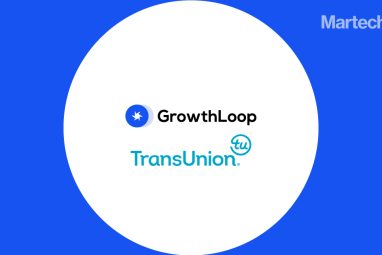Luxury Institute And Datalucent Debunk Data Myths
During the past few months, as economies recover and enter a new normal, Luxury Institute and DataLucent have engaged in rich, candid dialogue with C-level executives at top-tier luxury, premium and mass brands. During these conversations, a series of myths that are pervasive among brand executives have come to light – be they marketing, digital, […]
Topics

During the past few months, as economies recover and enter a new normal, Luxury Institute and DataLucent have engaged in rich, candid dialogue with C-level executives at top-tier luxury, premium and mass brands. During these conversations, a series of myths that are pervasive among brand executives have come to light – be they marketing, digital, legal, data, or privacy leaders – about customer data. Luxury Institute and DataLucent report the following data myths and corresponding truths to help executives take control of their customer data strategies to drive optimal results.
Myth 1: Digital platforms like Facebook and Google will always own and control consumer data.
Truth: Few executives are aware that consumers have owned the content and data they produce on digital platforms since 1996. Under Section 230 of the Communications Decency Act, digital platforms gain certain legal safe harbours only if they do not own or fully control the consumer content posted to their platforms. Further, modern privacy laws like GDPR and CCPA make mechanisms such as data portability and interoperability inherent rights for individuals. Consumers can now access and utilise simple, powerful tools that empower them to both regain control of their data and unlock its inherent value.
Myth 2: Brands don’t have access to consumer behavioural data, so they should rely solely on demographic, website, transaction, and survey-based data.
Truth: Ownership and access rights and current data access protocols allow consumers to download their full social media histories and access updates regularly. Legitimate personal data exchanges empower consumers to go a step further: once data histories are accessed, consumer information can be aggregated across platforms and combined (under consent) with traditional third-party sources. This legal access enables brands to use algorithms to build rich models based on authentic user behaviours to generate actionable insights, predictions, offers and decisions that were previously unreliable or impossible.
Myth 3: Since mass brands often market to prospects through third parties, they can never access rich, relevant, predictive customer data.
Truth: Today, what were once only traditional third-party data assets can be transformed into first party data assets. For example, DataLucent’s personal data exchange platform provides brands that sell to customers via distributors the ability to directly recruit social media data access from a national database of three million active consumers. This enables all brands and their agencies and analytics partners to engage directly with consumers to obtain specific consent to share the data that they own.
Myth 4: Real-time data is what we need to be great marketers.
Truth: Facebook, Google and Twitter generate billions of dollars in revenue and value because they have unique access to their users’ full historical data. Previous and repetitive behaviours expressed in social media profiles create a rich, relevant predictive baseline from which marketers can develop highly accurate predictive targeting models that lead to better real-time results.
Also Read: Marketing Trends Driving Luxury
Myth 5: Complying with privacy laws constricts a brand’s ability to use relevant data.
Truth: Privacy compliance will always be an essential element of data sourcing and use strategy, but marketers should not allow it to drive their business strategy. Companies that embrace modern privacy laws will develop strategies that are compliant by default because they place the customer first and recognise rights. The main data objective for any brand, however, should be to build direct, loyal, fair value, first-party data relationships with valued customers and prospects.
Myth 6: How suppliers collect customer data is not a brand marketing manager’s responsibility.
Truth: As consumers become aware of their rights under modern privacy laws and begin to realise the economic value of their data, they will increasingly demand that brands fully validate the integrity of their sources and will refuse to support companies that connect with questionable, illegal, or insecure data. Additionally, regulators globally now demand that all parties in the data supply chain comply with data regulations. Brands that support illegally sourced information will be at risk of penalties and consumer attrition.
Myth 7: Data helps to drive the business, but it’s not a part of the customer relationship.
Truth: In 2021, customer data sharing with a trusted brand is as important as customer transactions. That’s because customer data insights generate predictions, recommendations and decisions that drive business strategy and tactics across the entire transaction funnel. Most brands separate data policies and practices from human customer relationships. This is a major mistake given that the primary way that brands will access highly predictive data in a world regulated by strict privacy laws and opt-in tracking is to go directly to consumers, earn their trust, and make data sharing a fundamental component of the on-going customer relationship.
Myth 8: Our privacy-conscious customers will never agree to share their data.
Truth: Recent global and local consumer surveys find that 65 per cent of consumers of all ages and genders will share their social media data with brands they trust, if they are assured that their privacy will be respected. Most consumer goods and services brands have established strong reputations for legal compliance and social responsibility. This means that consumers, especially digitally savvy Millennials and Gen-Z consumers, are very comfortable sharing data with trusted brands.
“Customer data is the lifeblood, the critical fuel, of digital transformation and optimal business performance,” said Milton Pedraza, Chairman of DataLucent, CEO of the Luxury Institute, and personal data innovation investor. “No socially responsible brand can afford to operate under myths and half-truths related to how to legally access and use critical customer data. We need to dispose of the stifling myths and share the favourable realities of building loyal first-party data relationships with customers. Today, in the digital era, brands must confront reality if they are to execute brilliantly to serve all their constituents, especially their valued customers.”






